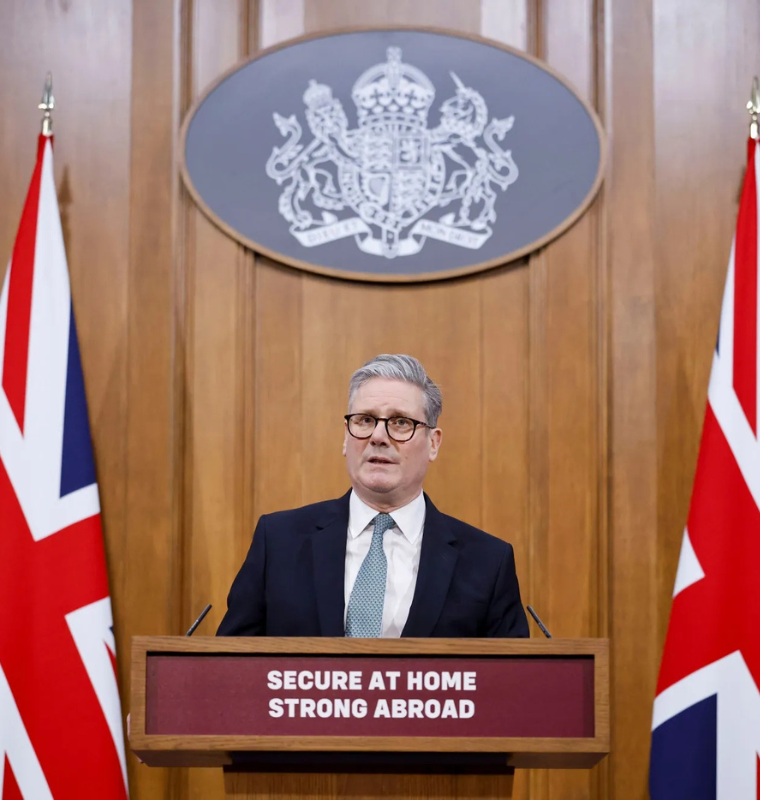Norway’s $2 Trillion Wealth Fund Drops Caterpillar and Israeli Banks Over Human Rights Concerns
Norway’s $2 Trillion Wealth Fund Drops Caterpillar and Israeli Banks Over Human Rights Concerns
By
Leah Rosenfeld
Last updated:
August 27, 2025
First Published:
August 27, 2025

Photo: Daily Sabah
The world’s largest sovereign wealth fund, Norway’s $2 trillion Government Pension Fund Global, has announced it will divest from U.S. machinery giant Caterpillar and five major Israeli banks, citing what it called an “unacceptable risk” that the companies are complicit in human rights violations tied to the Israeli-Palestinian conflict.
Why the Fund Made the Decision
The executive board of Norges Bank Investment Management (NBIM), which manages the fund, said the decision followed recommendations from its independent ethics council. The watchdog concluded that Caterpillar’s bulldozers have been used by Israeli authorities in the unlawful demolition of Palestinian homes and infrastructure. At the end of 2024, NBIM held a $2.4 billion stake in Caterpillar, representing about 1.2% ownership.
The fund also blacklisted five Israeli lenders—First International Bank of Israel, FIBI Holdings, Bank Leumi Le-Israel BM, Mizrahi Tefahot Bank, and Bank Hapoalim BM. According to NBIM, these banks provided financial services that enabled construction of Israeli settlements in the occupied West Bank, which the United Nations has deemed illegal under international law.
Mounting Pressure Ahead of Elections
NBIM’s divestment comes amid intensifying political pressure at home, with Norway heading into elections in just two weeks. Public scrutiny has been particularly sharp given the worsening humanitarian situation in Gaza and the West Bank.
CEO Nicolai Tangen recently admitted in an interview with Swedish business daily Dagens Industri that the fund faces a “crisis of credibility” and said he regretted not acting sooner when it was revealed that NBIM also held a stake in an Israeli defense contractor during the height of airstrikes on Gaza.
Balancing Ethics and Returns
NBIM is required by law to maximize financial returns for future generations of Norwegians while also following strict ethical guidelines. Around 70% of the fund’s portfolio is in equities, with U.S. companies making up 55% of its stock investments. In 2023, the fund earned a record $222 billion profit, largely due to heavy exposure to the technology sector, though it reported a $40 billion loss in the first quarter of 2024 amid global market volatility.
Despite concerns, historical data suggests that ethical exclusions have had little negative impact on long-term returns, and in some cases have even improved results, according to Oxford University researcher Ana Nacvalovaite. “The exclusions by NBIM highlight the unavoidable collision between business and human rights,” she said.
Reshaping Its Israeli Portfolio
Earlier this month, NBIM announced a broader review of its Israeli holdings after a direct request from Norway’s Ministry of Finance. It pledged to divest from all Israeli companies outside its equity benchmark index “as soon as possible” and terminate contracts with external asset managers in Israel.
The number of Israeli companies in its benchmark index has already been cut from 56 at the start of the year to 38 by mid-August. Despite the reductions, NBIM Deputy CEO Trond Grande told CNBC on August 12 that the fund would continue investing in Israel through the benchmark index.
Grande emphasized that the divestments were not politically motivated but strictly based on ethical standards. “What’s key to us is that we’re not invested in companies that could be in some way, shape or form contributing to violations of our ethical guidelines,” he said.
Broader Market Impact
The announcement comes as the Tel Aviv Stock Exchange hit record highs this year, underscoring how Israel’s financial markets have remained resilient despite military conflicts and international criticism. Meanwhile, critics point out that NBIM continues to hold investments in companies from countries accused of other human rights violations, as well as in fossil fuel industries.
Still, the fund’s latest move signals to global markets that the world’s largest investor is willing to apply its ethical guidelines consistently—even when it means severing ties with high-profile U.S. industrials or major Israeli lenders.
Popular articles
Subscribe to unlock premium content
How Blue Bottle Coffee Became a $700M Specialty Coffee Icon

Gordon Moore: The Man Behind Moore’s Law and the Tech Revolution

How Shein Became a Fast Fashion Powerhouse Without Traditional Advertising

How Blue Bottle Coffee Became a $700M Specialty Coffee Icon

Gordon Moore: The Man Behind Moore’s Law and the Tech Revolution

How Blue Bottle Coffee Became a $700M Specialty Coffee Icon









